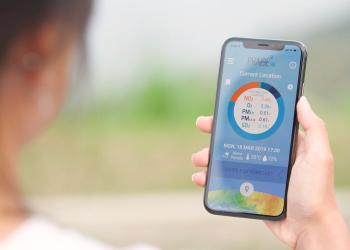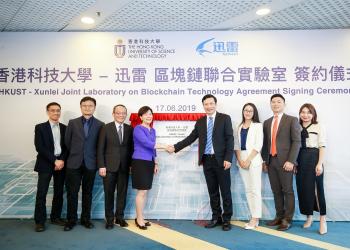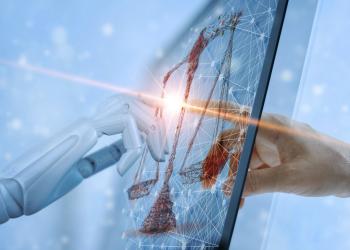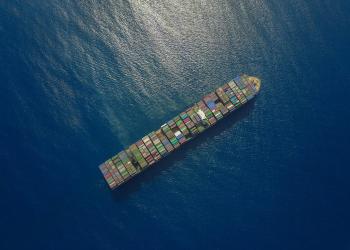News & Stories
2019

News
Time to Smell the Roses in Race of Life
Humans are creatures who often judge whether a dish is attractive or a stranger is friendly simply by their own eyes. But our sense of smell is just as important.
We all may have the experience of eating with a stuffy nose and found a dish to be tasteless or using our nose to check whether it has gone bad.
Moreover, people tend to keep their distance from a person with an unpleasant odor, while special odors like gas can alert us to dangers of a leak.
As the old Chinese adage goes, "My shack is better than an emperor's bed."
What makes our own shack better?
Our smell, together with the smell of our family members, and pets as well if any, makes it unique and reassuring.
To understand how smell impacts people, researchers at the University of British Columbia, Canada, invited 96 couples for a study last year.

News
HKUST New App (PRAISE-HK) Uses Street-Level Air Quality Data to Reduce Personal Exposure and Health Risk
HKUST Institute for the Environment today launched a new mobile app that aims to help users reduce their exposure to outdoor air pollution. PRAISE-HK stands for “Personalized Real-time Air-quality Informatics System for Exposure – Hong Kong” and will help build Hong Kong into a world-class smart and healthy city. Funded by HSBC 150th Anniversary Charity Program, PRAISE-HK is a five-year project commenced in November 2016, and covers three major release milestones for the mobile app and the system:

News
HKUST and Xunlei Establish Joint Laboratory to Drive Innovation and Applications of Blockchain Technology
The Hong Kong University of Science and Technology (HKUST) and Xunlei Limited (Xunlei or the Company) today announced the establishment of HKUST-Xunlei Joint Laboratory on Blockchain Technology (the Joint Lab). The Joint Lab aims to develop cutting-edge and influential blockchain technologies that are applicable to various industries and establish a high-performance blockchain ecosystem in the Guangdong-Hong Kong-Macao Greater Bay Area.
A signing ceremony was held on HKUST campus, marking the official launch of the Joint Lab and research collaboration. Prof. Tim CHENG, Dean of Engineering of HKUST, and Ms. LAI Xin, the Chief Engineer of ThunderChain at Xunlei, signed the collaborative agreement as witnessed by Prof. Nancy IP, Vice-President for Research and Development of HKUST, and Mr. CHEN Lei, Chief Executive Officer of Xunlei and Onething Technologies.
News
HKUST to lead Hong Kong’s Largest Research Project on Extreme Weather Prediction and Landslide Early Warning System by Using Artificial Intelligence
An international and multidisciplinary research team led by the Hong Kong University of Science and Technology (HKUST) was recently granted a research fund of HK$91.85 million by the University Grants Committee (UGC). Under the leadership of Prof. Charles NG Wang-Wai (HKUST Associate Vice-President for Research and Development and CLP Holdings Professor of Sustainability), this project will deliver a comprehensive extreme weather and landslide warning system. This novel system will increase the forecast lead time of heavy rainfall from three to six hours, thereby giving the general public and responders more time to prepare for potential disasters.

News
Robo-lawyer: Your AI Conflict Resolution
Getting a divorce is hard, but going through paperwork and court proceedings can leave a deeper scar. A team of HKUST’s Computer Science and Engineering (CSE) students, supervised by professors and alumnus, has developed a “robo-lawyer” that not only saves time and money, but also paves the way for wider application of artificial intelligence technologies in the legal profession.
Hong Kong’s divorce rate in 2016 was more than double that in 1991. The rising demand for family mediation has been a mounting challenge for Albert SO, a CSE alumnus from HKUST, who chairs the Hong Kong Mediation and Arbitration Centre. Few divorcing couples actually realized that the high legal costs and procedural drag would take an emotional toll on themselves, says Albert. Many of them are unwilling or unable to sit down for a mediation that could take months or years, especially for cross-border couples.

News
High Time for Clarity on Sea Emissions
By Prof. Ning Zhi, Associate Professor of Environment and Sustainability
Marine emissions account for 40 percent of air pollution sources in Hong Kong - making them one of the city's most significant pollutant sources.
Given the SAR's status as one of the busiest ports in the world, enforcing clean fuel laws is absolutely essential in our quest to clean up our air.
Traditionally, policing high sulfur fuel usage is a time-consuming affair: checking ship logs, collecting samples from fuel tanks, taking them back to the lab and then conducting analyses. This process takes days and even weeks.
By the time these measurements are complete, the ships are likely to be already far from Hong Kong.
Regulators have been looking for a more efficient solution to detect and screen the vessels violating the fuel sulfur cap regulations.

News
MoC Signed between HKUST and ZA International to Strengthen Collaboration in Fintech and Insurtech
The School of Business and Management of The Hong Kong University of Science and Technology (HKUST Business School) and ZhongAn Technologies International Group Ltd (ZA International) signed a Memorandum of Cooperation (MoC) to open up a new stream of opportunities for faculty and students in the fields of Fintech and Insurtech.
The HKUST Business School aspires to become a major intellectual powerhouse of Fintech in Asia and is undertaking a major Fintech research project funded by the Research Grants Council under its Theme-based Research Scheme. The project examines the impacts of Fintech on Hong Kong and looks into ways to contribute to the development of the city into a global Fintech hub.

News
Bigger Pi for All in New Barcodes
By Mow Wai-ho, Associate Professor of Electronic and Computer Engineering, HKUST
Compared with the mainland, Hong Kong seems to be lagging behind in adopting QR codes for financial transactions.
However, innovators in Hong Kong are not standing still in developing the next generation of barcodes that can revolutionize the way we do business.
For example, my research team is continuing to work on PiCode, a barcode variant that utilizes images instead of the black-and-white lines and blocks that comprise conventional barcodes and QR codes.
We have spent almost five years researching picture- and video-embedded codes, and are now in the demonstration phase.
Picture-embedded barcodes offer considerable potential in consumer marketing. Many people may find regular barcodes intrusive, and businesses have searched for ways to transmit data and information to consumers in a more pleasing format.






